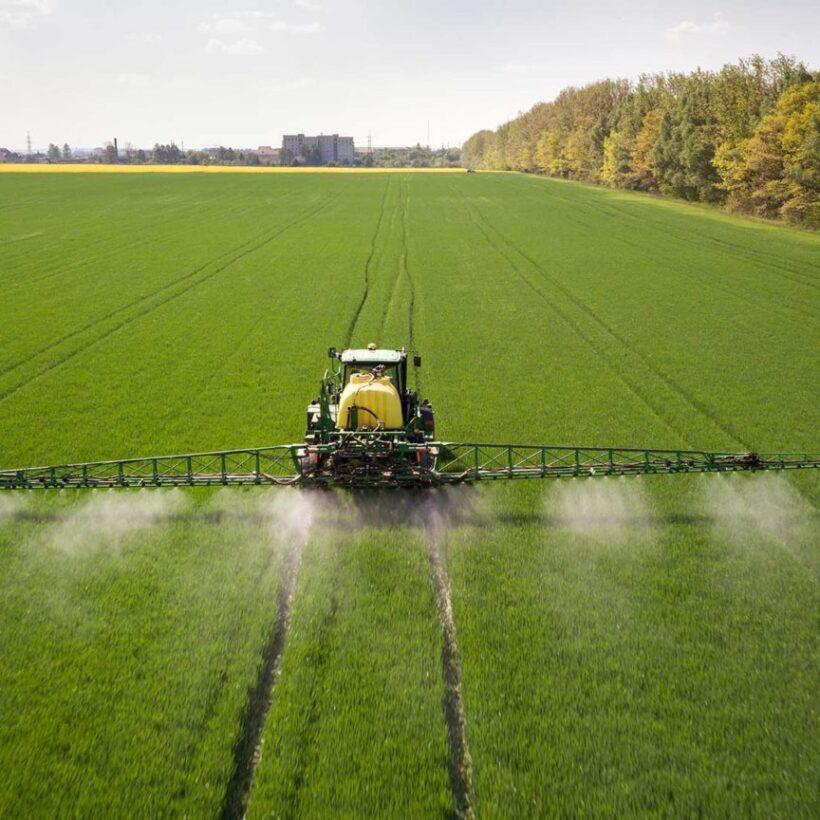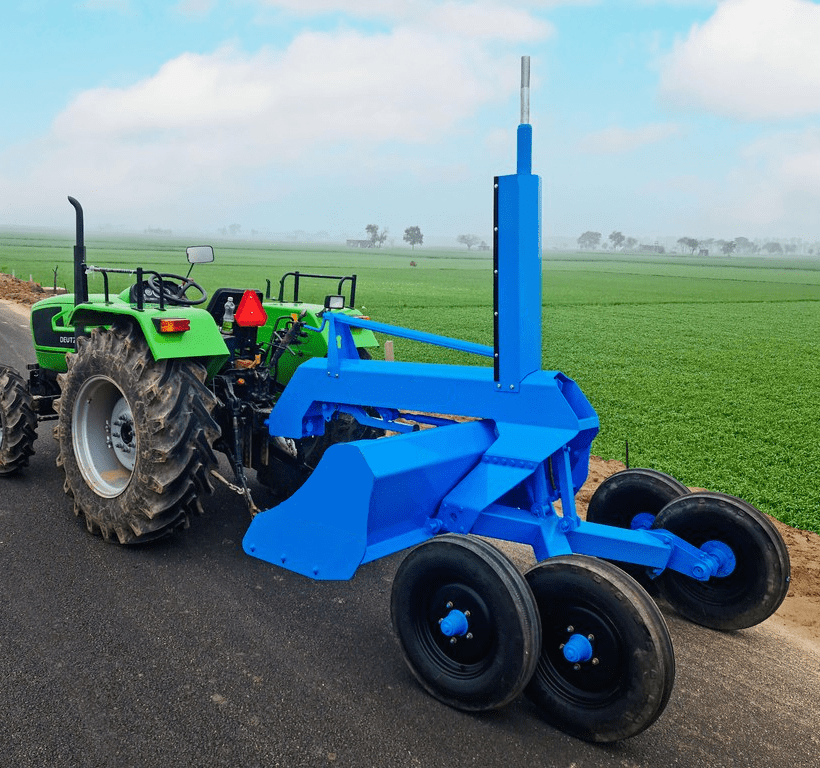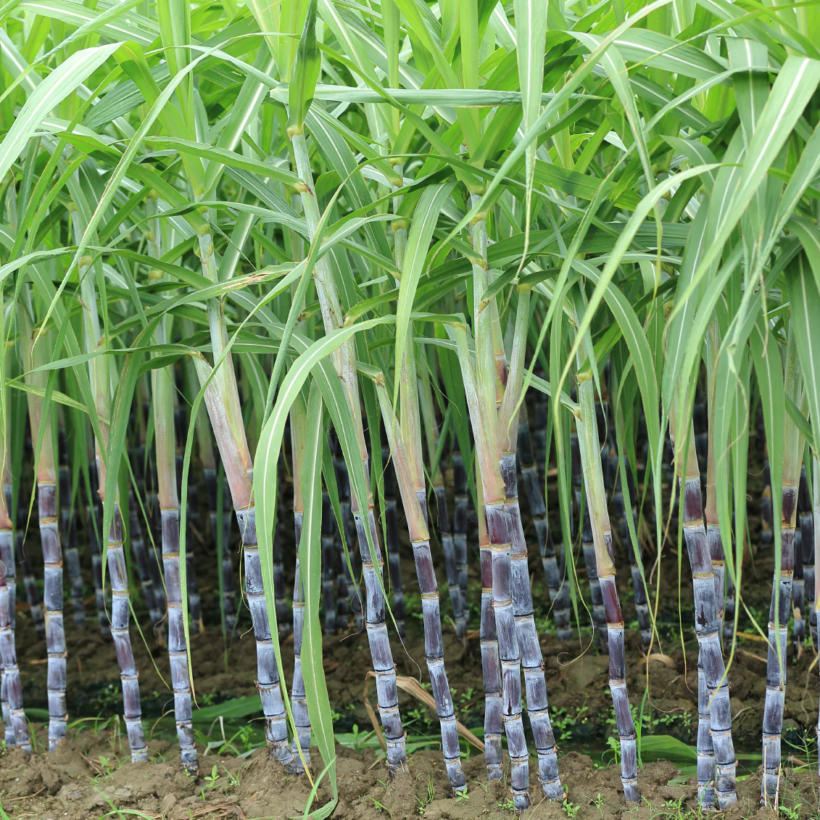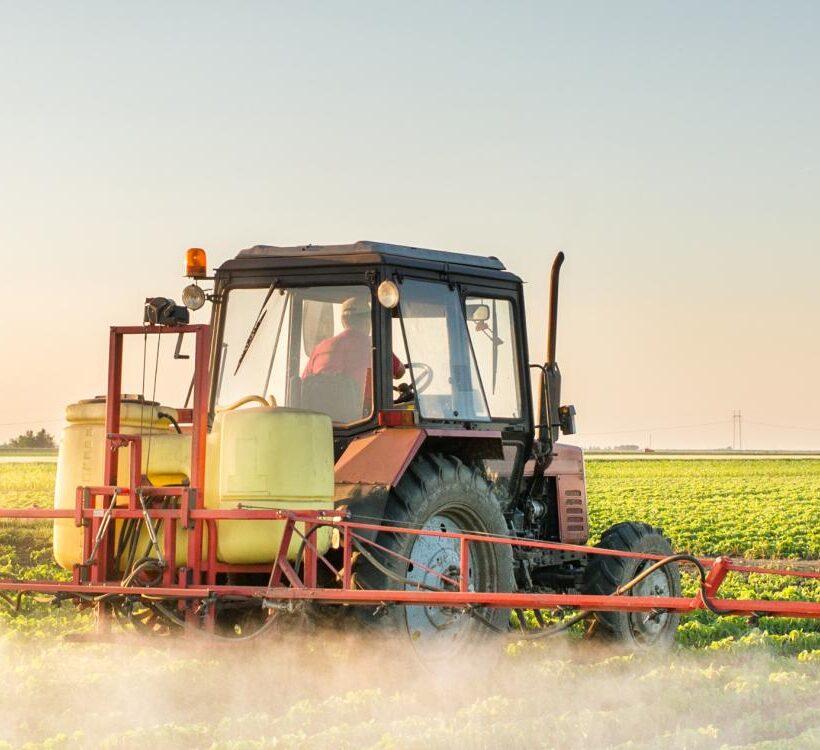
Boron – A Key Micronutrient
Boron – A Key Micronutrient What is Boron? A balanced supply of essential macro and micronutrients is one of the most important factors to achieve higher crop yields. Boron (B) is one of 8 micronutrients needed for proper plant growth. Lack of B in plant tissue can reduce cell wall function and stability, cell elongation,...
Read more
खेती के लिए महत्वपूर्ण लेजर लैंड लेवलर
खेती के लिए महत्वपूर्ण लेजर लैंड लेवलर भूमि से अच्छी फसल उत्पादन लेने के लिए हमारी भूमि का समतल होना बहुत जरूरी होता है, वहीं पहले जहाँ खेतों की भूमि को समतल करने के लिए पारंपरिक तरीके अपनाए जाते थे, जिसमे समय, मेहनत और पैसे ज्यादा खर्च होते थे। इन्ही सबको ध्यान में रखते हुए...
Read more
इन आसान प्रक्रियाओं का पालन करके, असली खाद की पहचान करें
इन आसान प्रक्रियाओं का पालन करके, असली खाद की पहचान करें किसान भाइयों आजकल दुकानों में कई तरह के खाद मिलते है इसलिए सही एवं असली खाद का चुनाव करना बहुत जरूरी हो गया है। मोज़ेक सभी किसान भाइयों को सबसे पहले अपनी मिट्टी की जांच करवाकर ही खाद का प्रयोग करने की सलाह देता...
Read more
About Sugarcane Crop in India
About Sugarcane Crop in India Introduction In India, Sugarcane is the main source of sugar and holds a prominent position as a cash crop. India is the world’s largest consumer and the second-largest producer of sugar, topped only by Brazil. Nearly 2.8 lakh farmers have been cultivating sugarcane in the vast area of 4.4 lakh...
Read more
Importance of Foliar Nutrient Application
Importance of Foliar Nutrient Application 17 Nutrients are required for the growth and development of any plant – Carbon Hydrogen Oxygen Nitrogen Phosphorus Potassium Calcium Magnesium Sulphur Boron Zinc Copper Manganese Iron Chloride Molybdenum Nickle Out of these 17 essential nutrients, 3 nutrients are sourced from air and water – Carbon Hydrogen Oxygen For remaining...
Read more
मृदा परीक्षण की आवश्यकता एवं लाभ
मृदा परीक्षण की आवश्यकता एवं लाभ भारत एक कृषि प्रधान देश है, और कृषि के लिए मिट्टी की आवश्यकता होती है। मिट्टी के बिना खेती का होना लगभग असंभव है। हमारी इस मिट्टी की स्थिति निरंतर गिरती जा रही है और विभिन्न प्रकार की समस्याएं बढ़ती जा रही है, ज़्यादातर क्षेत्रों में किसान भाई भी...
Read more
Balanced Crop Nutrition
Balanced Crop Nutrition Balanced Crop Nutrition (BCN) refers to the maintenance of soil fertility for sustaining the desired productivity by judicious use of all possible nutrient sources like organic, inorganic and biological components in balanced manner. There are 17 essential plant nutrients required for optimal plant growth and development. If any one of these nutrients...
Read more